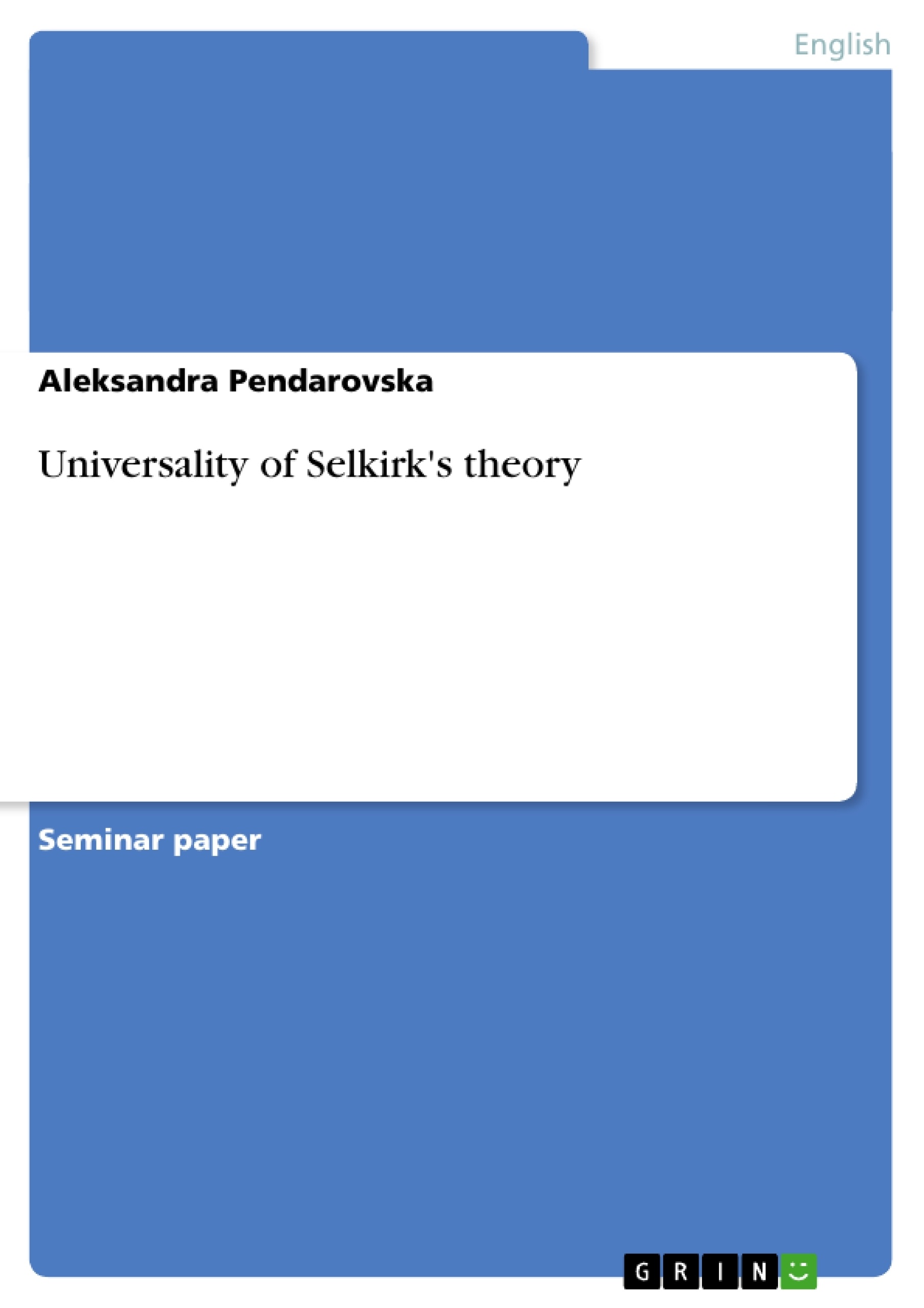A particularly interesting subject in the area of morphology are the compounds as complex words with a specific semantic and formal structure. The aim of this paper is to support Selkirk´s universal theory for compounds by applying it to a typologically different language from English such as the south Slavic language - Serbian. The need for such an inquiry arises from the fact that Selkirk uses solely examples from English, although she claims that her theory can be applied universally. The research on this subject will comprise few steps, the first of which will be to look at the definitions and criteria for compounds both in Serbian and English in order to establish what word units are considered compounds in both languages. Then, the compound types generated by Selkirk´s general rewriting rule will be investigated as well as the 'systematic gaps' that occur both in English and in Serbian. Furthermore, an application of the principles of headedness, feature percolation and the first order projection condition in Serbian compounds will be carried out. These points should illustrate as already stated that Selkirk´s theory accounts for Serbian compounds as well, despite certain language specific characteristics. For the Serbian compounds the presented analysis will be primarily based on two articles of the Serbian linguist Dusanka Vukicevic as well as on the compound part of Matthias Rammelmeyer´s work on word formation.
Inhaltsverzeichnis (Table of Contents)
- Introduction
- Definition and criteria for compounds
- Compound types
- Headedness
- First order projection condition
- Conclusion
Zielsetzung und Themenschwerpunkte (Objectives and Key Themes)
This paper aims to support Selkirk's universal theory for compounds by applying it to Serbian, a typologically different language from English. The research explores the definition and criteria for compounds in both languages, investigates compound types and systematic gaps, and applies principles of headedness, feature percolation, and the first order projection condition to Serbian compounds. The study focuses on illustrating the universality of Selkirk's theory while acknowledging language-specific characteristics.
- The universality of Selkirk's theory of compounds.
- Definition and criteria for compounds in Serbian and English.
- Analysis of compound types and systematic gaps in both languages.
- Application of headedness, feature percolation, and the first order projection condition to Serbian compounds.
- Language-specific characteristics of Serbian compound formation.
Zusammenfassung der Kapitel (Chapter Summaries)
- Introduction: This chapter introduces the topic of compounds, highlighting the universality of Selkirk's theory and the need to apply it to Serbian. The research methodology and objectives are outlined.
- Definition and criteria for compounds: This chapter provides definitions and criteria for compounds in both Serbian and English, discussing the role of binding vowels in Serbian compound formation. It highlights the importance of stress patterns and the distinction between compounds and phrases.
Schlüsselwörter (Keywords)
The key words and focus topics of this work include compound formation, Selkirk's theory, Serbian, English, headedness, feature percolation, first order projection condition, systematic gaps, language-specific characteristics, binding vowels, stress patterns, compounds versus phrases.
Frequently Asked Questions
What is Selkirk's theory of compounds?
Elisabeth Selkirk's theory provides a universal framework for understanding how complex words (compounds) are formed, focusing on formal and semantic structures.
How does the study apply this theory to the Serbian language?
The paper tests whether Selkirk's rules, originally based on English, can account for the morphological structure of Serbian compounds, despite typological differences.
What are binding vowels in Serbian compounds?
In Serbian, many compounds are joined by a linking element or "binding vowel" (e.g., -o-), which is a specific characteristic not typically found in English compound formation.
What is "headedness" in morphology?
Headedness refers to the principle that one part of a compound (the head) determines the grammatical category and core meaning of the entire word.
What is the "first order projection condition"?
It is a rule within Selkirk's framework that governs how features and arguments of the parts are inherited by the whole compound word.
- Citation du texte
- Aleksandra Pendarovska (Auteur), 2005, Universality of Selkirk's theory, Munich, GRIN Verlag, https://www.grin.com/document/41249



